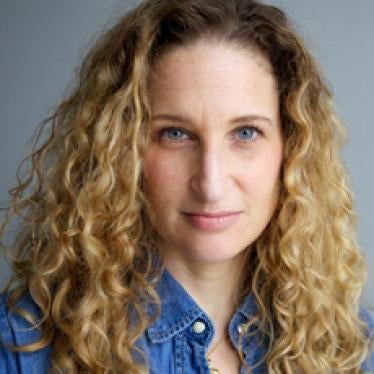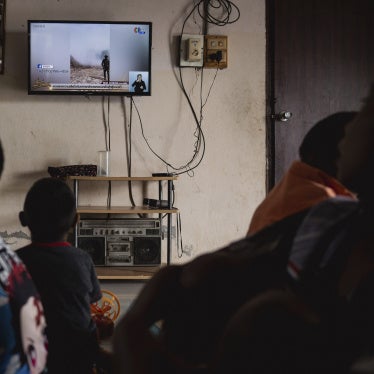Yesterday’s spotlight was meant to be for the Central African Republic’s newly-elected President as he took his oath of office. But news of up to 100 additional cases of sexual exploitation and abuse by peacekeepers in the country quickly changed that.
Since allegations of French troops abusing children emerged last year, the Central African Republic has become the epicenter of ongoing reports of sexual exploitation and abuse by peacekeeping forces. Much attention has been paid to improving the UN system to prevent abuses and hold abusers to account. Yet surprisingly little has been said about meeting the needs of those most affected: the victims.
When we documented rape and exploitation by peacekeepers in the central town of Bambari in January, only one of eight women and girls had received medical or psychosocial care. A community leader told us she had reported the gang-rape of 14-year-old “Cecile” by Republic of Congo troops to a UN agency in November. Two months later, Cecile had received no health care or psychological support, and there was no money for transport to the hospital. This is exactly the type of failure that an independent review of UN response to sexual exploitation and abuse in the country recently called “appalling.”
Told of Cecile’s case, agencies sprang into action but risked revealing her identity and exposing her to re-traumatization through multiple interviews. Within days, at least three agencies interviewed Cecile separately about the rape. It was no surprise that when yet another UN group arrived to speak with her she had disappeared.
The UN has since promised, including in the UN secretary-general’s annual report, to prioritize measures to ensure care for survivors. A recent Security Council resolution notably calls for a survivor-centered response, including essential care but also mitigation of risks for survivors, such as re-traumatization and stigma. It’s too late to ensure this for Cecile, but not for others. And knowing they can expect a sensitive response may encourage more survivors to come forward, leading to greater accountability.
Parfait Onanga-Anyanga, the UN secretary-general’s special representative to the Central African Republic, has emphasized a commitment to tackling impunity for peacekeepers who exploit and abuse while making survivors’ needs the top priority. Responding to the most recent allegations, he stressed an obligation to survivors, saying: “Now is the time for the rights of victims to come first.”
Such public pledges are long overdue. Now UN officials should be held to these promises.









